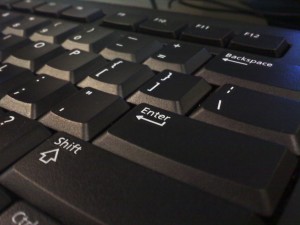
Analog vs. Digital in the Diplomatic World
The analog vs. digital debate has turned from watches, to cameras, and now to diplomacy. Today I attended an event on Digital Diplomacy at the Carnegie Endowment for International Peace. Given my skepticism of many digital diplomacy efforts, I was pleased to come out of the event with impression that there is a general understanding of the limits of digital efforts. It seems that even amongst digital’s proponents, there is an appreciation of the importance of “analog,” old-fashioned diplomacy.
 Alec Ross, the Senior Adviser for Innovation to Hillary Clinton, emphasized the importance of traditional forms of diplomacy, and argued that digital tools can be used to build on these traditional methods. For instance, digital communication can be used to identify new people outside of the traditional circles with which to communicate on a face-to-face basis. He also stressed that digital communication provides another means for listening to the target audience, not just a method for pushing a message out. This perspective was surprisingly refreshing, but my fear is that this is not well-understood throughout the State Department.
Alec Ross, the Senior Adviser for Innovation to Hillary Clinton, emphasized the importance of traditional forms of diplomacy, and argued that digital tools can be used to build on these traditional methods. For instance, digital communication can be used to identify new people outside of the traditional circles with which to communicate on a face-to-face basis. He also stressed that digital communication provides another means for listening to the target audience, not just a method for pushing a message out. This perspective was surprisingly refreshing, but my fear is that this is not well-understood throughout the State Department.
Ambassador Arturo Sarukhan Casamitjana, the Mexican Ambassador to the U.S., also pointed out that digital diplomacy isn’t a substitute. Interestingly, he noted that the real-time nature of the internet puts pressure on foreign ministries, embassies, and ambassadors to produce content and respond faster, a process which simply cannot be done using the approval process that has traditionally been used. As a consequence of the digital era, he believes that embassies will evolve into self-contained small foreign ministries operating with less oversight from the home ministry.
Ambassador Harold Forsyth, the Peruvian Ambassador to the U.S., highlighted the importance of people to the diplomatic process. He explained that diplomacy of the future will be dependent on the people, stressing the increasingly important role of public diplomacy in state-to-state relations. Despite the many surnames of diplomacy [whether cultural, e-, sports, or public], they all serve to benefit the greater concept of diplomacy as a whole.
Sarah Wynn-Williams, herself serving as part of New Zealand’s, mission to the U.N., is now a manager of public policy at Facebook. She brought up a few things that I found concerning, including the use of virtual embassies by the United States. Despite her focus on these as positive developments, I believe the use of virtual embassies is being exploited as a substitute for on-the-ground people-to-people communication. They also do little to serve the actual needs of foreigners seeking a means of communication for real world, rather than virtual needs. To read more about the problems with e-diplomacy, check out my earlier post on the topic.
While I was pleasantly satisfied with the panel’s overall emphasis on the importance of people-to-people diplomacy and traditional forms of diplomatic procedure, one topic that didn’t arise was that of censorship. In countries like Iran and China, the internet is heavily censored, monitored and restricted. The use of online tools to reach the people of these countries is extremely limited, and in some cases, the internet is used by the government to stifle opposition. The State Department made a big deal about the creation of a Virtual Embassy in Tehran, despite the fact that it was almost immediately blocked by the Iranian government.
Yes, digital diplomacy is a tool that can and should be used. But the fact is it is just another step in the progression of communication mediums. The telegraph, the television, and now the internet. It can and should be heavily used, but can never suffice for the implementation of good messaging, good listening and good policies. The difference now is that the public uses these tools better than the governments that are so excited about them.






[…] Carnegie had already posted video and audio of the event by early afternoon. USC PDC alumnus Matthew Wallin blogged his assessment of the discussion shortly there […]
I agree with the comment on ‘virtual embassies’ – particularly the Tehran one. I think it is extremely counter-productive (assuming State officials are concerned primarily with diplomacy and not getting good ‘hi-tech trailblazer’ headlines). It was entirely predictable that the ‘Tehran’ embassy would be blocked immediately, and the notion that anyone using circumvention tools will be desperate to access the site is a joke. In the case of (primarily young, educated) Iranian users of circumvention tools, the provision of the tools themselves is of infinitely greater ‘soft power’ benefit than some tacky US-public diplomacy effort. The only thing the online embassy does is draw attention to US efforts to influence Iranian’s online – thus allowing the regime in Tehran to justify internet-repression. Entirely counter-productive.
[…] Wallin: Analog vs. Digital in the Diplomatic World […]